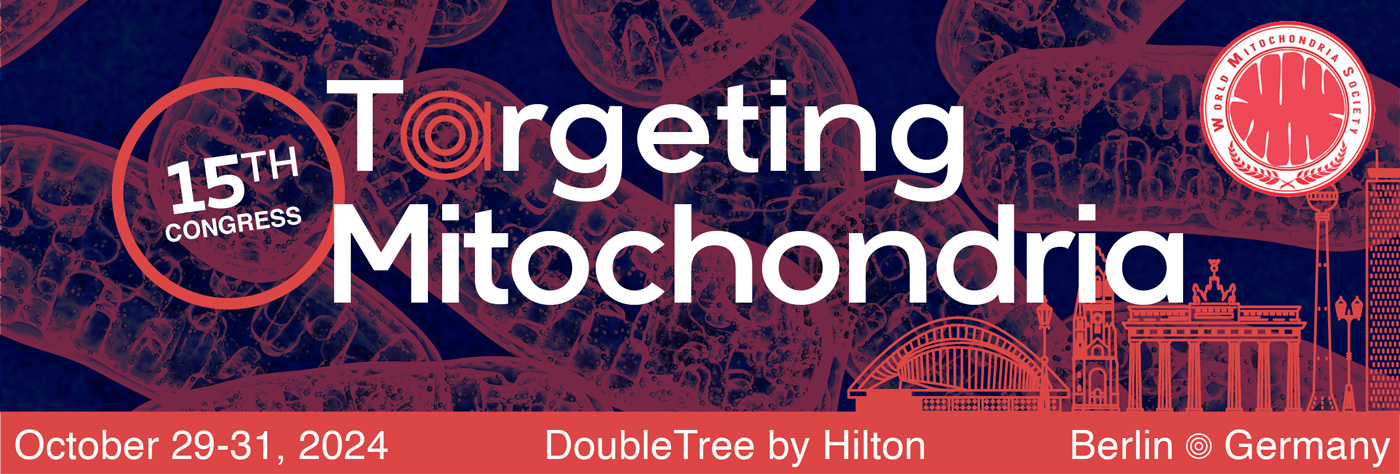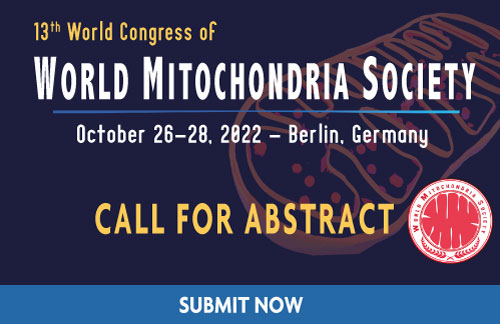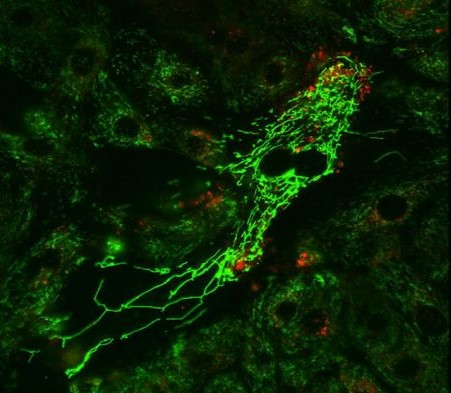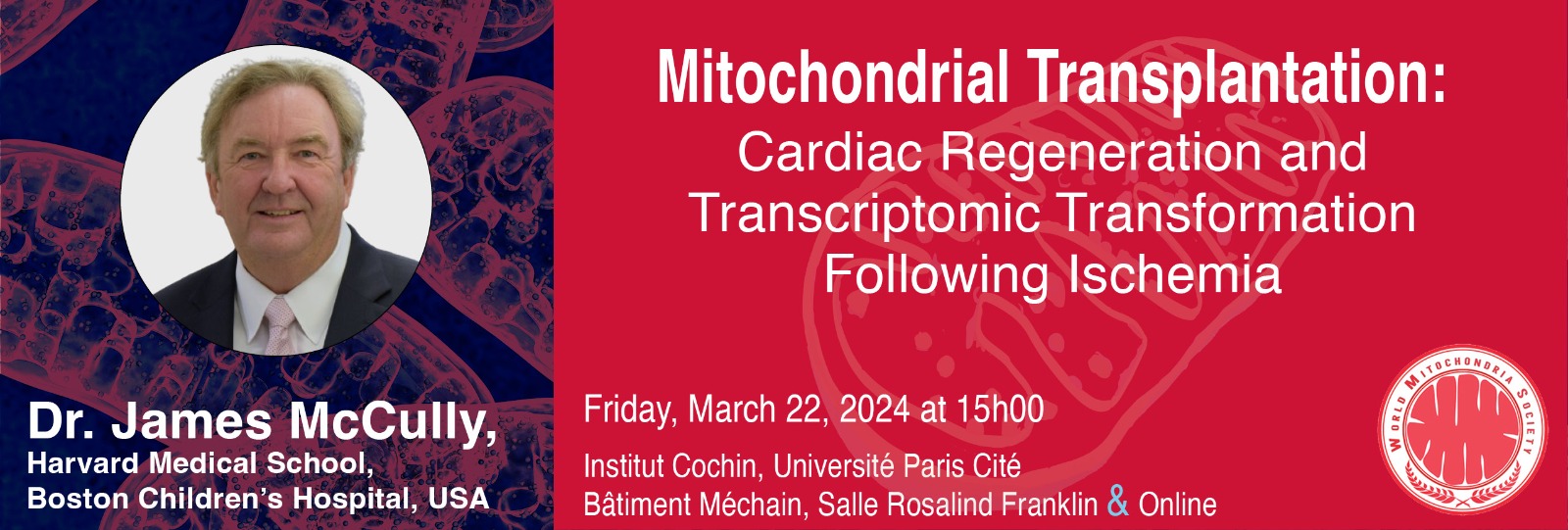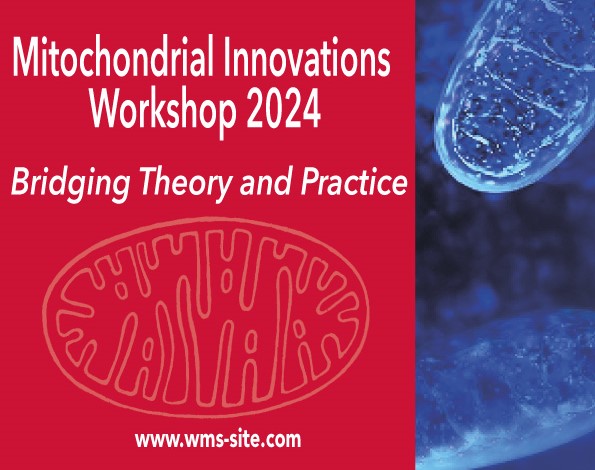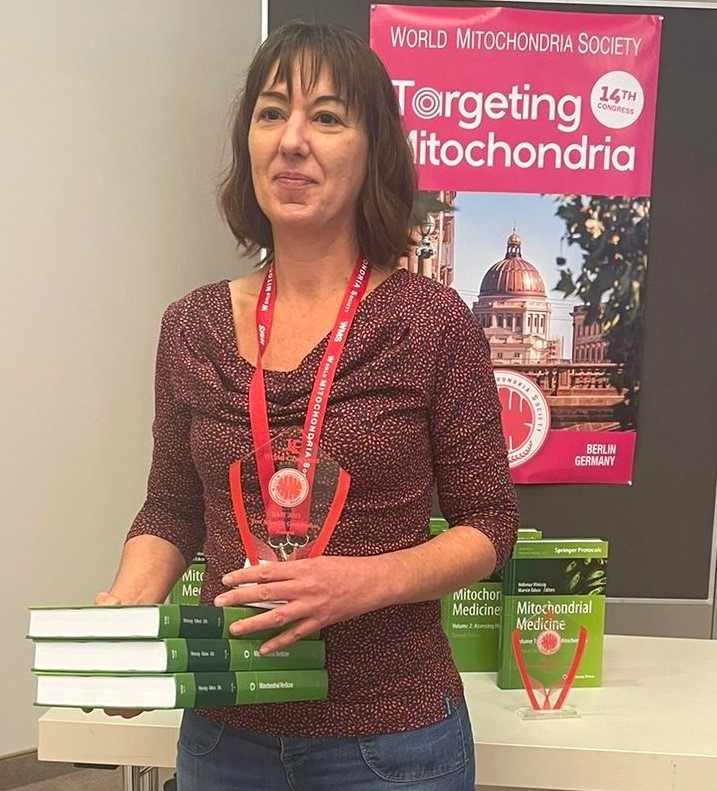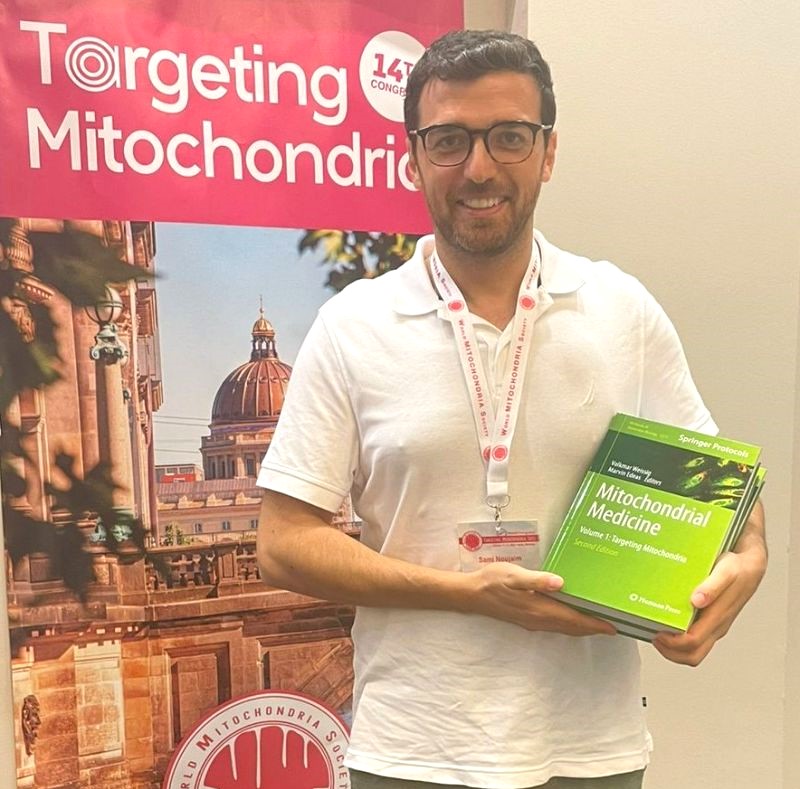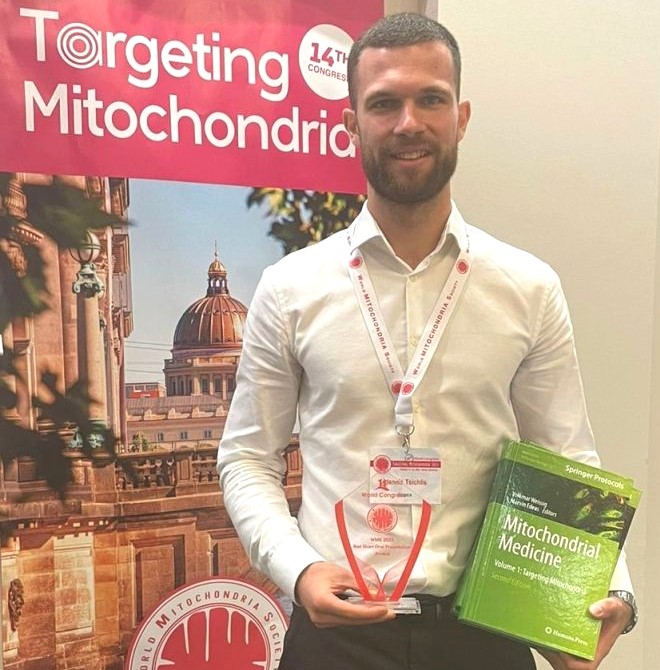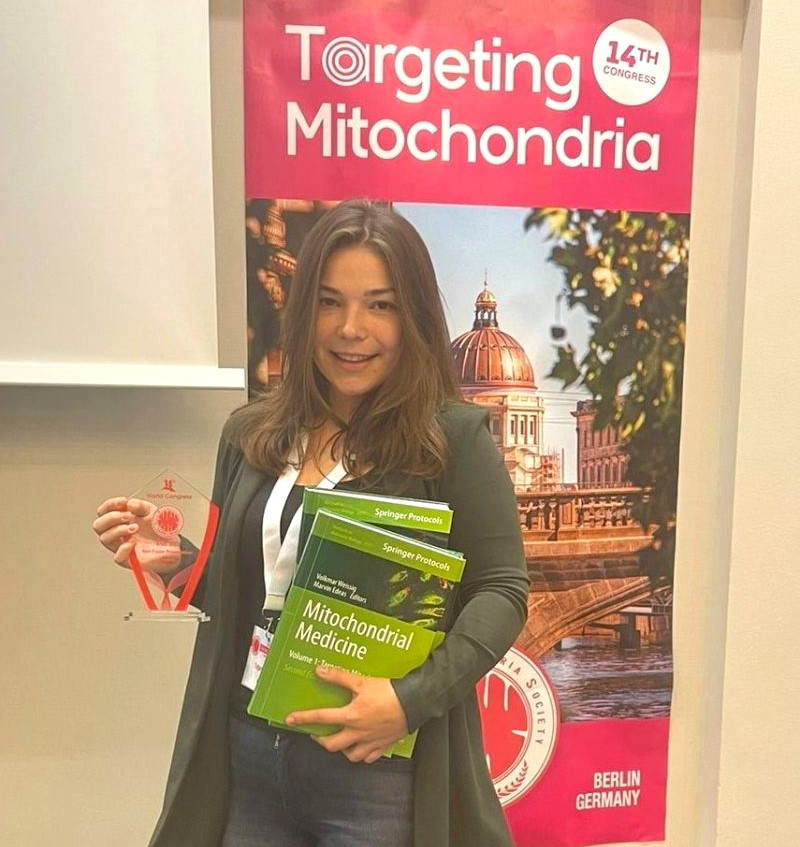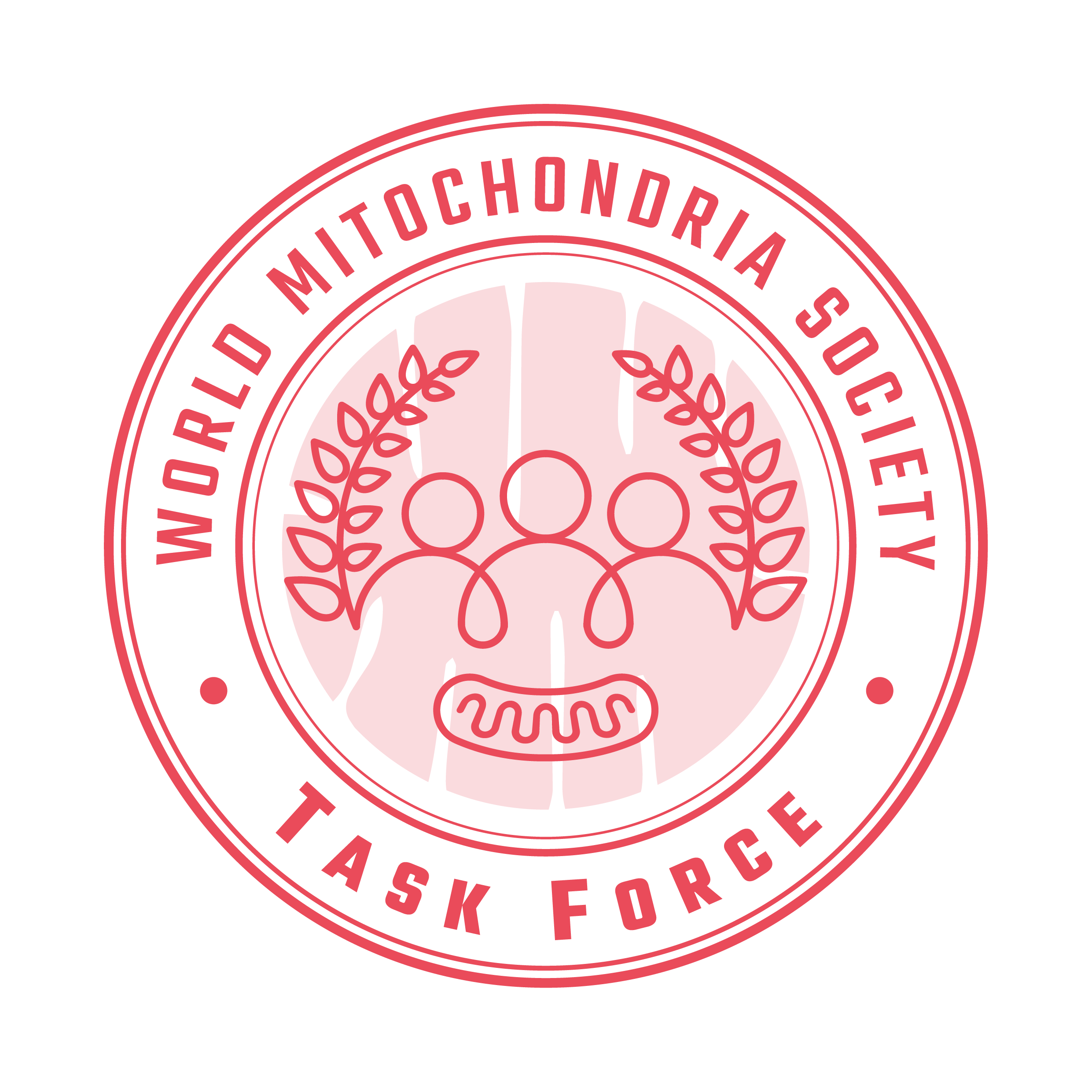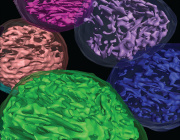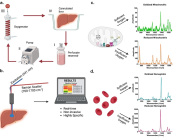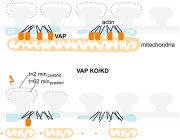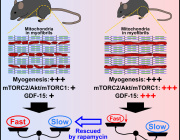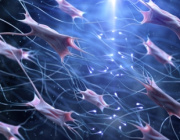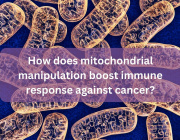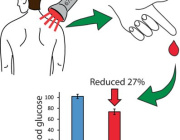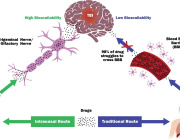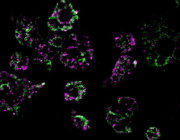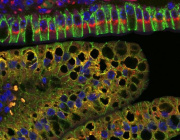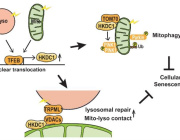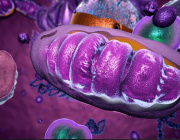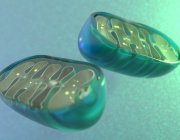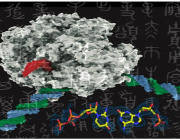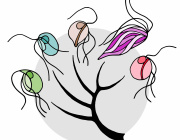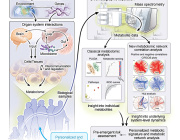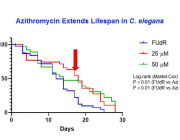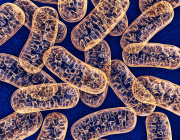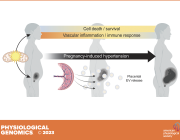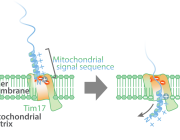Mitochondrial responses to a massive trauma-determinant of survival
 Dr. Marc G. Jeschke, from the University of Toronto, Canada will join us this year to present his most recent findings on "Mitochondrial responses to a massive trauma-determinant of survival".
Dr. Marc G. Jeschke, from the University of Toronto, Canada will join us this year to present his most recent findings on "Mitochondrial responses to a massive trauma-determinant of survival".
He will be introducing us to the mitochondrial function and associate metabolic changes in a model of severe trauma. He will also delineate changes associated with age.
Targeting Mitochondria 2022 Congress
October 26-28, 2022 - Berlin, Germany
www.targeting-mitochondria.com
2-Deoxy-D-glucose couples mitochondrial DNA replication with mitochondrial fitness
 Dr. Ian J. Holt, from the Biodonostia Health Research Institute, Spain will join us this year to present his most recent findings on "2-Deoxy-D-glucose couples mitochondrial DNA replication with mitochondrial fitness".
Dr. Ian J. Holt, from the Biodonostia Health Research Institute, Spain will join us this year to present his most recent findings on "2-Deoxy-D-glucose couples mitochondrial DNA replication with mitochondrial fitness".
Ever since mutant mitochondrial DNA was discovered to cause human diseases researchers have sought to understand how defective mitochondria evade natural selection, and to find ways to combat them. Most mutant mitochondrial DNA variants cause disease only when they account for substantially more than half the total population of molecules, and so decreasing the level of the mutants by a small amount can produce dramatic improvements in mitochondrial function.
Dr. Holt discovered that the replication of mutant mitochondrial DNA is equal to that of wild-type molecules when nutrients are plentiful; however, nutrient restriction inhibits the replication of mutant mtDNA. Using small molecules that limit nutrient consumption he then decreased the mutant load in cells of patients with mitochondrial DNA disease.
These findings indicate the parasitic nature of mitochondria with mutant mtDNA and identify a highly promising therapeutic strategy that we are advancing towards the clinic.
Targeting Mitochondria 2022 Congress
October 26-28, 2022 - Berlin, Germany
www.targeting-mitochondria.com
Mitochondrial Transfer via MitoPunch

Dr. Michael Teitell, from the University of California, USA will join us this year to present his most recent findings on "Mitochondrial Transfer via MitoPunch".
He will be discussing the use of MitoPunch to deliver mitochondria containing mitochondrial DNA (mtDNA) into cells lacking mtDNA.
Targeting Mitochondria 2022 Congress
October 26-28, 2022 - Berlin, Germany
www.targeting-mitochondria.com
Mitochondrial targeting in aging and injury

Dr. Raghavan Pillai Raju, from the Medical College of Georgia, USA will join us this year to present his most recent findings on "Mitochondrial targeting in aging and injury".
Dr. Raju's laboratory is interested in understanding the alterations in mitochondrial function with aging and injury and developing strategies that target mitochondria to restore metabolic coordinates following acute injury. He will also discuss the resilience of young animals to injury and the rejuvenating effect of plasma-derived extracellular vesicles from young animals in potentiating mitochondrial function and improving survival following hemorrhagic shock injury in aged animals.
Targeting Mitochondria 2022 Congress
October 26-28, 2022 - Berlin, Germany
www.targeting-mitochondria.com
Mitochondria in Retinal Photoreceptors: More than Meets the Eye
 Dr. John Ball, from National Institutes of Health, USA, will join us this year to present his most recent findings on the "Mitochondria in Retinal Photoreceptors: More than Meets the Eye".
Dr. John Ball, from National Institutes of Health, USA, will join us this year to present his most recent findings on the "Mitochondria in Retinal Photoreceptors: More than Meets the Eye".
In the mammalian retina, each cone photoreceptor contains a multitude of mitochondria that appose its outer segment, where photons are detected and translated into bioelectrical signals that lead to perception of light.
Dr. Ball shows that—in addition to their customary energetic role—this mitochondrial agglomeration functions as a microlens that enhances the availability of light at the outer segment. This optical role has implications for both vision and for the diagnosis of retinal disease.
Join us in Targeting Mitochondria 2022 to learn about the many major roles of mitochondria and benefit from the experience of professional researchers like Dr. Ball. Book your spot.
Targeting Mitochondria 2022 Congress
October 26-28, 2022 - Berlin, Germany
wms-site.com
The Multiple Facets of the Mitochondria Shaping Protein Opa1 in Adipocytes: From Epigenetic to Tissue Plasticity
 Dr. Camilla Bean, from the University of Padova, Italy will join us this year to present her most recent findings on "The Multiple Facets of the Mitochondria Shaping Protein Opa1 in Adipocytes: From Epigenetic to Tissue Plasticity".
Dr. Camilla Bean, from the University of Padova, Italy will join us this year to present her most recent findings on "The Multiple Facets of the Mitochondria Shaping Protein Opa1 in Adipocytes: From Epigenetic to Tissue Plasticity".
She will introduce us to her studies that substantiate the importance of mitochondrial morphology in adipose tissue biology. By a multiomics approach in different genetic models she shows that adipocyte Opa1 regulates adipose tissue expandability and promotes WAT to BAT remodelling via an unexpected axis involving urea cycle stimulation, fumarate accumulation and the Jumanji family histone demethylase Kdm3a.
Targeting Mitochondria 2022 Congress
October 26-28, 2022 - Berlin, Germany
wms-site.com
Call for Abstracts & Innovations
|
This call is addressed to all the scientists, academics, and industrials out there! The Scientific Committee of the World Mitochondria Society & Targeting Mitochondria Congress are pleased to invite you to present your most recent findings in the mitochondria field- during the 13th World Mitochondria Society Annual Meeting on October 26-28, 2022 in Berlin, Germany. |
Important dates for this international meeting:
- Deadline for Short Oral Submission: October 9, 2022
- Deadline for Poster Submission: October 15, 2022
To know more about the abstracts submission process, please click here.
Be careful not to miss the deadlines!
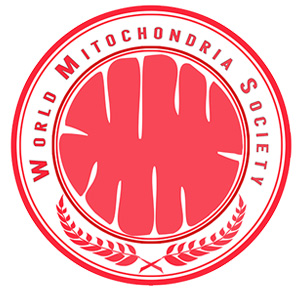 Targeting Mitochondria 2022 Congress
Targeting Mitochondria 2022 Congress
October 26-28, 2022 - Berlin, Germany
www.targeting-mitochondria.com
Winners of the Best Mitochondria Image 2021
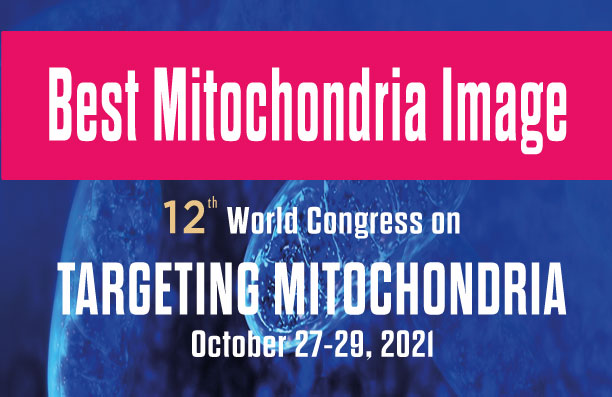
The winners of the Best Mitochondria Image 2021 have been chosen.
|
1st Place Winner - Midnight Mitochondrial Ghost |
|
|
|
Adelheid Weidinger, from the Ludwig Boltzmann Institute for Traumatology, Austria Midnight Mitochondrial Ghost: Human amniotic epithelial cells incubated with Fe-nanoclusters |
|
|
|
|
2nd Place Winner - A Gift |
|
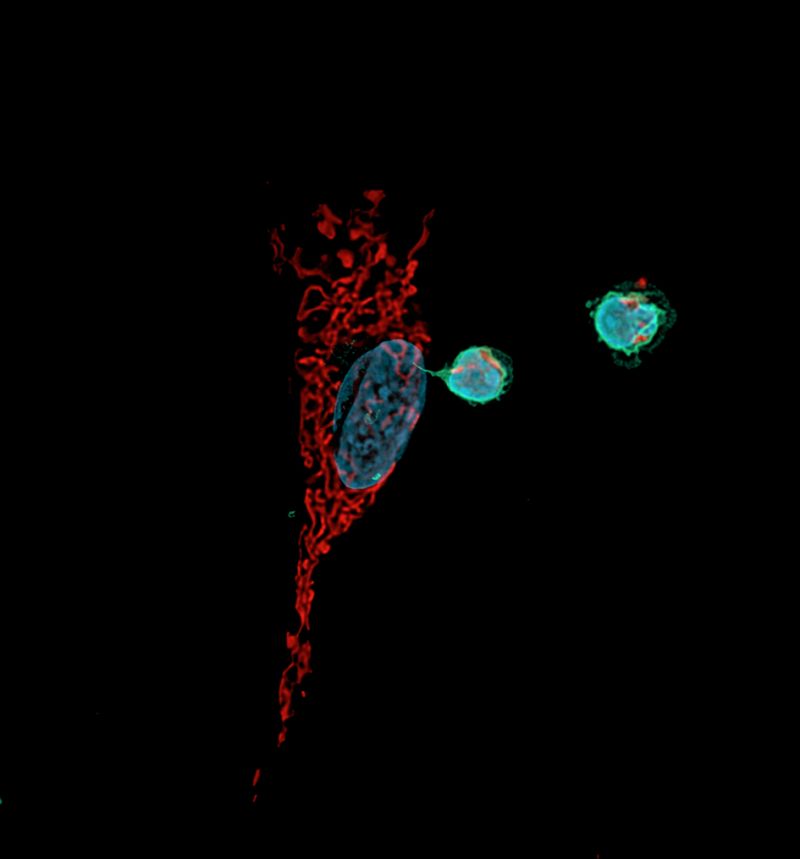 |
Bianka Porubská, from Charles University, Prague A Gift: Sertoli cell transferig MitoTrackerCMXROS (red) mitochondria to immune cell (CD45, green), Nuclei DAPI (blue)
|
|
|
|
|
3rd Place Winner - Mito-Tree |
|
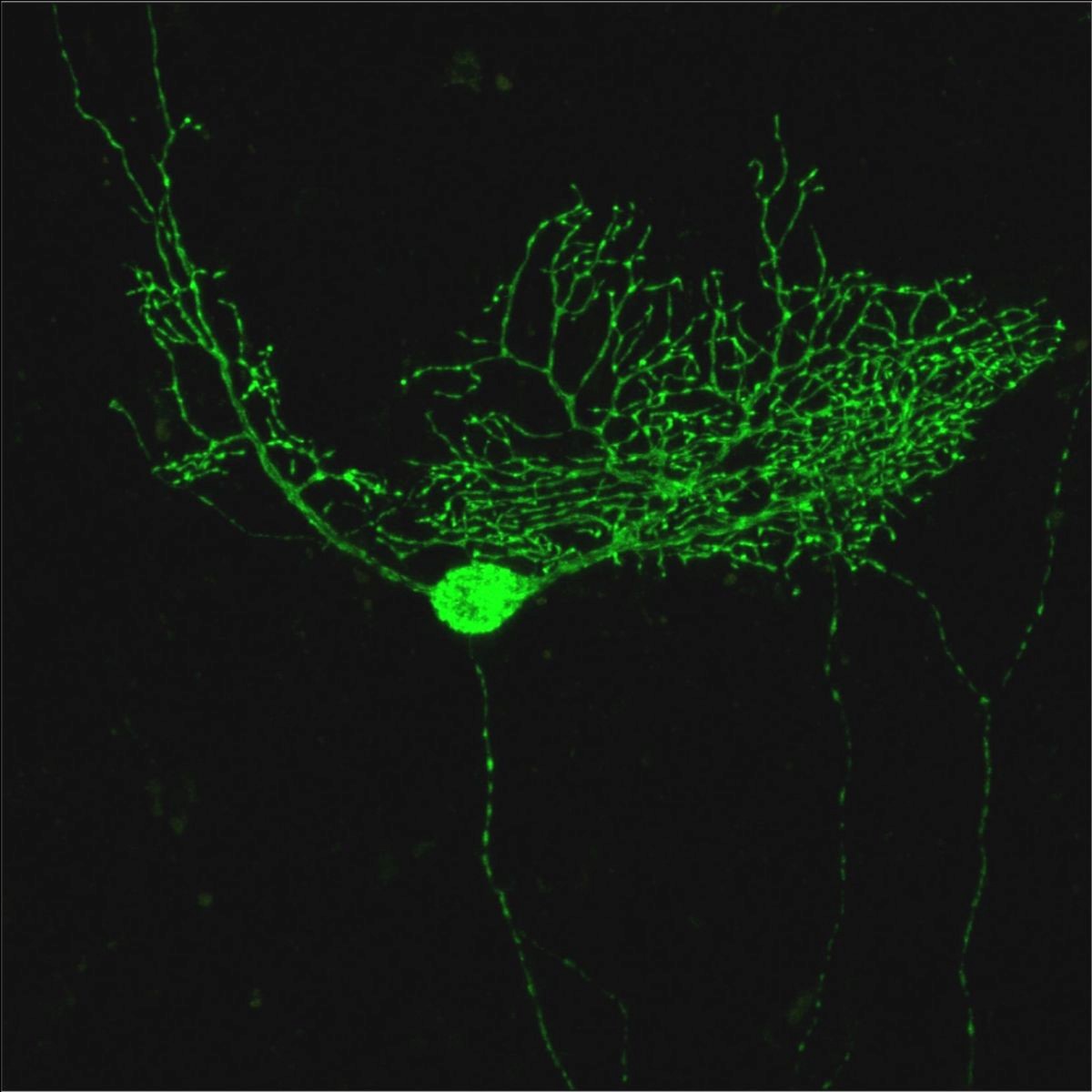 |
Simon Licht-Mayer, from the Institute for Molecular Biotechnology, Austria Mito-Tree: Live image of the mitochondrial network in a Purkinje cell, including the cell body, axon and huge dendritic tree. |
You can see all nominated pictures for the Best Mitochondria Image 2021 here.
Submit a memorable Mitochondria Image you’ve taken this past year and get the chance to win a free registration for the next congress!
Best Poster Presentation Awards 2021
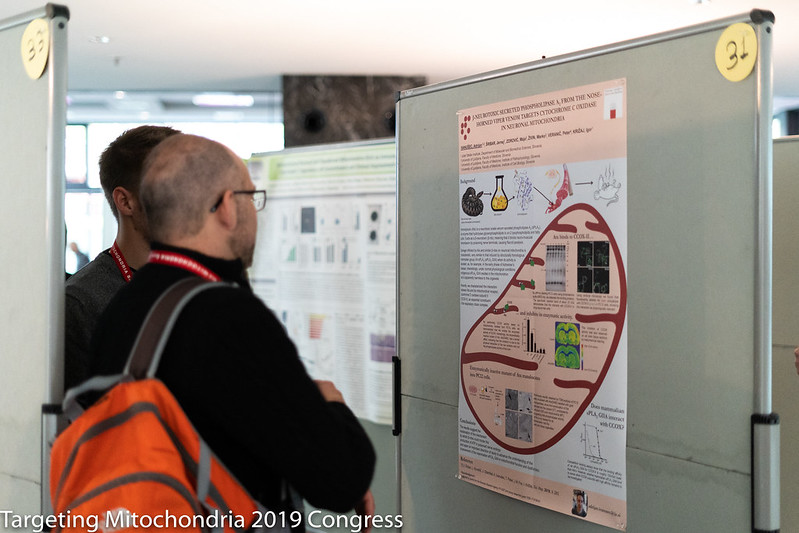
19 Posters were presented during Targeting Mitochondria 2021 (held on October 27-29 2021).
Nominated Posters for the Awards of the Best Poster Presentation 2021:
Using Polypeptide-Based Nanoconjugates as Mitochondrially-Targeted Drug Delivery Platforms
Camilla Pegoraro, Centro de Investigacion Principe Felipe, Spain
Disease Causing-MFN2 Mutations Alter Mitochondrial Fusion and Fission Dynamics in Mouse Embryonic Fibroblast
Daniel Lagos, Pontificia Universidad Católica de Chile, Chile
The Mitochondrial Network is Altered in Friedreich’s Ataxia Cardiomyopathy
Bojjibabu Chidipi, University of South Florida, United States of America
The Mitochondrial NME6 Protein is Enzymatically Inactive but Interacts with RCC1L (WBSCR16) in the Matrix Space
Bastien Proust, Ruder Boskovic Institute, Croatia
Functional Characterization of Platelet-Derived Mitochondria-Containing Microparticles in Breast Cancer
Vanessa Veilleux, Université de Moncton, Canada
OPA1 Disease-Causing Mutants Alter Mitochondrial Nucleoid Dynamics
Josefa Macuada, Pontificia Universidad Católica de Chile, Chile
The winners of the Best Poster Presentation Awards - Targeting Mitochondria 2021
Award #1:
 Functional Characterization of Platelet-Derived Mitochondria-Containing Microparticles in Breast Cancer, Vanessa Veilleux, Université de Moncton, Canada
Functional Characterization of Platelet-Derived Mitochondria-Containing Microparticles in Breast Cancer, Vanessa Veilleux, Université de Moncton, Canada
"Participating at this international conference was a great experience and broaden my knowledge of mitochondrial research. Having the desire and the deep ambition to contribute to the advancement of scientific knowledge, I’m looking forward to the next Targeting Mitochondria"
Award #2:
 Using Polypeptide-Based Nanoconjugates as Mitochondrially-Targeted Drug Delivery Platforms, Camilla Pegoraro, Centro de Investigacion Principe Felipe, Spain
Using Polypeptide-Based Nanoconjugates as Mitochondrially-Targeted Drug Delivery Platforms, Camilla Pegoraro, Centro de Investigacion Principe Felipe, Spain
“My Ph.D. project aims to develop novel polypeptide-based carriers that permit targeted drug delivery to mitochondria as a novel breast cancer treatment strategy. We successfully developed several cationic polypeptide-based candidate carriers, and our preliminary results have provided robust evidence for specific mitochondrial colocalization. Our next steps involve the conjugation of bioactive agents of interest to our candidate polypeptide-based carriers, their exhaustive characterization, and their therapeutic evaluation in relevant breast cancer models and possibly other indications.”
Award #3:
 The Mitochondrial Network is Altered in Friedreich’s Ataxia Cardiomyopathy, Bojjibabu Chidipi, University of South Florida, United States of America
The Mitochondrial Network is Altered in Friedreich’s Ataxia Cardiomyopathy, Bojjibabu Chidipi, University of South Florida, United States of America
"I am currently investigating the mechanisms of cardiomyopathy in Friedreich’s ataxia (FA), an autosomal recessive congenital neurodegenerative disease caused by a deficiency in the frataxin protein. Interestingly, most FA patients are diagnosed with left ventricular hypertrophic cardiomyopathy (HCM), and 60% of patients die with HCM. We recently found that the mitochondrial fission protein (DRP1) expression is significantly decreased, reactive oxygen species are increased, and the mitochondrial membrane potential is depolarized in human induced pluripotent stem cell derived cardiomyocytes (hIPSC-CM) from patients with FA-HCM. My future prospects are to explore the mechanistic links between DRP1, mitochondrial dysfunction and HCM in FA."
Targeting Mitochondria 2021 Congress
October 27-29, 2021 - Interactive Online Congress
www.targeting-mitochondria.com
Best Short Oral Presentation Award 2021
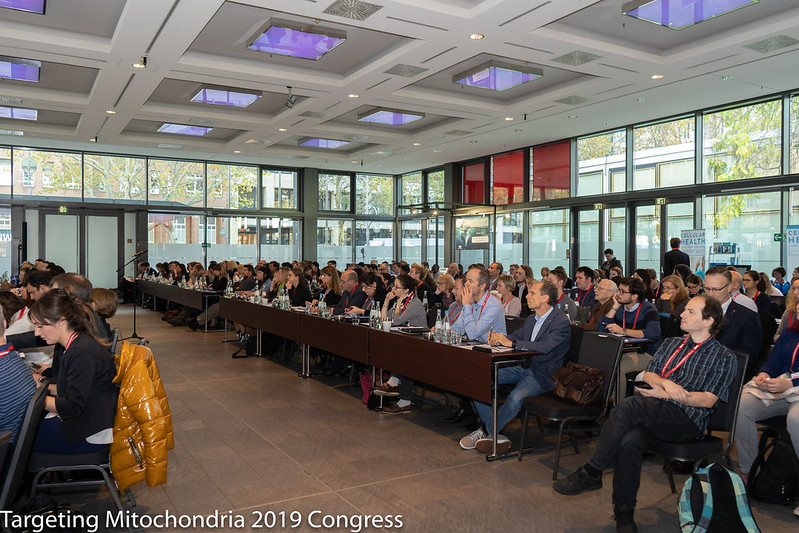
Out of 23 short oral presentations communicated during Targeting Mitochondria 2021 (held on October 27-29 2021), the scientific committee selected 4 presentations for the Awards of the Best Short Oral Presentation 2021.
Nomination for the Best Short Oral Presentation Award
Novel Cytotoxic Compounds Targeting Mitochondria
Alaa Al Assi, Université Grenoble Alpes, France
Transplantation of Muscle Stem Cell-Derived Mitochondria Rejuvenates the Bioenergetic Function of Aged Host Muscle
Young Charles Jang, Georgia Institute of Technology, USA
Impact on Mitochondrial Function by Increased Levels of Mitochondrial RNA Polymerase
Inge Kuhl, Université Paris-Saclay, France
Cross Talk of Mitochondrial Calcification and Inflammation in Human Skeletal Muscle Cells: Implications for Calcinosis
Bhargavi Duvvuri, University of Washington, USA
The Winner of the Best Short Oral Presentation Award
 Transplantation of Muscle Stem Cell-Derived Mitochondria Rejuvenates the Bioenergetic Function of Aged Host Muscle
Transplantation of Muscle Stem Cell-Derived Mitochondria Rejuvenates the Bioenergetic Function of Aged Host Muscle
Young Charles Jang, Georgia Institute of Technology, USA
Young Charles Jang commenting on his vision for next year: "For the upcoming year, we will continue to do research on how transplanted mitochondria establish mitochondrial-nuclear genomic communication and how aging and oxidative stress alter these interactions."
Targeting Mitochondria 2021 Congress
October 27-29, 2021 - Interactive Online Congress
www.targeting-mitochondria.com
Scientific Award of Targeting Mitochondria 2021
 At the end of Targeting Mitochondria 2021, the scientific committee awarded Prof. Alessandro Prigione for his presentation about "Patient-Specific Brain Organoids for Modeling Mitochondrial Diseases"
At the end of Targeting Mitochondria 2021, the scientific committee awarded Prof. Alessandro Prigione for his presentation about "Patient-Specific Brain Organoids for Modeling Mitochondrial Diseases"
Alessandro Prigione is a tenured Associate Professor of Pediatric Metabolic Medicine at the Department of General Pediatrics, Neonatology and Pediatric Cardiology at Heinrich Heine University (HHU) in Düsseldorf Germany.
The interest of the Prigione group is to develop induced pluripotent stem cells (iPSC)-based approaches for disease modeling and drug discovery of rare incurable neurological and neurodevelopmental disorders affecting mitochondrial metabolism. A specific focus is on Leigh syndrome, which is the most severe mitochondrial disease affecting children. His latest work (Inak et al Nature Communications 2021) employed human neurons and brain organoids from patients with Leigh syndrome to dissect the neuronal-specific disease mechanisms and led to the identification of novel disease targets and interventions.
Targeting Mitochondria 2021 Congress
October 27-29, 2021 - Interactive Online Congress
www.targeting-mitochondria.com
Comprehensive Multi-Omics Analysis Reveals Mitochondrial Stress as a Central Biological Hub for Spaceflight Impact
 Dr. Afshin Beheshti, from the NASA Ames Research Center, Moffett Field, USA will join us this year to present his recent findings on "Comprehensive Multi-Omics Analysis Reveals Mitochondrial Stress as a Central Biological Hub for Spaceflight Impact".
Dr. Afshin Beheshti, from the NASA Ames Research Center, Moffett Field, USA will join us this year to present his recent findings on "Comprehensive Multi-Omics Analysis Reveals Mitochondrial Stress as a Central Biological Hub for Spaceflight Impact".
Targeting Mitochondria 2021 Congress
October 27-29, 2021 - Berlin & Virtual Congress
www.targeting-mitochondria.com
Programmable Synthetic Gene Switches for Mitochondrial Gene Modulation
 Prof. Ganesh Pandian Namasivayam from Kyoto University, Institute for Advanced Study, Japan, will join the Targeting Mitochondria 2021 congress and will present his research on "Deleting DNA to Treat Mitochondrial Diseases".
Prof. Ganesh Pandian Namasivayam from Kyoto University, Institute for Advanced Study, Japan, will join the Targeting Mitochondria 2021 congress and will present his research on "Deleting DNA to Treat Mitochondrial Diseases".
According to his latest studies, mutations in mitochondrial DNA (mtDNA) cause mitochondrial diseases characterized by abnormal mitochondrial function. Although eliminating mutated mtDNA has the potential to cure mitochondrial diseases, no chemical-based drugs in clinical trials are capable of selective modulation of mtDNA mutations. In his presentation, Prof. Ganesh discusses the progress and therapeutic prospects of synthetic gene switches that can be programmed for targeted elimination of mutated mtDNA through sequence-specific adenine alkylation.
Targeting Mitochondria 2021 Congress
October 27-29, 2021 - Berlin & Virtual Congress
www.targeting-mitochondria.com
The Mitochondriotropic DecylTPP Group Lowers Mitochondrial OXPHOS Supercomplex Levels and Induces a Glycolytic Switch
 Prof. Werner Koopman, from the Department of Biochemistry, Radboud Institute for Molecular Life Sciences, will join the Targeting Mitochondria 2021 Congress and will present a talk entitled "The Mitochondriotropic DecylTPP Group Lowers Mitochondrial OXPHOS Supercomplex Levels and Induces a Glycolytic Switch".
Prof. Werner Koopman, from the Department of Biochemistry, Radboud Institute for Molecular Life Sciences, will join the Targeting Mitochondria 2021 Congress and will present a talk entitled "The Mitochondriotropic DecylTPP Group Lowers Mitochondrial OXPHOS Supercomplex Levels and Induces a Glycolytic Switch".
Prof. Koopman will discuss the bioenergetic effects of mitochondria-targeted Trolox(MitoE10), in comparison with mitochondria-targeted ubiquinone (MitoQ10) and two mitochondria-targeting moieties (decylTPP, TPMP). Incubation with these molecules did not greatly affect cell viability of primary human skin fibroblasts (PHSFs) from healthy individuals and a patient with Leigh Syndrome (LS). Unexpectedly, MitoE10, MitoQ10 and decylTPP reduced the levels and activity of the first oxidative phosphorylation complex (complex I or CI) and of the amount of CI+CIII-containing OXPHOS super complexes. Functionally, these effects were associated with reduced cellular oxygen consumption rates, increased extracellular acidification rates , a less negative mitochondrial membrane potential (deltaPSI), a decreased mitochondrial size and elevated levels of hydroethidine-oxidizing ROS. Collectively, these results demonstrate that MitoE10, MitoQ10 and decylTPP lower the levels of CI and CI-containing super complexes in PHSFs, leading to mitochondrial dysfunction and glycolytic switch induction.
Targeting Microbiota 2021 Congress
October 20-22, 2021 - Paris, France & Online
www.targeting-mitochondria.com
The One-Carbon Pool Controls Mitochondrial Energy Metabolism via Complex I and Iron-Sulfur Clusters

Dr. Anna Wredenberg, from Max Planck Institute Biology of Ageing–Karolinska Institutet Laboratory, Karolinska Institutet, Sweden will be joining the Targeting Mitochondria 2021 World Congress, and will deliver a speech concerning "The One-Carbon Pool Controls Mitochondrial Energy Metabolism via Complex I and Iron-Sulfur Clusters".
Accoring to her recent studies, Dr. Wredenberg confirms that vital intermediary steps of one-carbon metabolism are localized to mitochondria, but it remains unclear how it connects to mitochondrial function. Additionally,The one-carbon metabolite and methyl group donor S-adenosylmethionine (SAM) is pivotal for energy metabolism. A gradual decline in mitochondrial SAM (mitoSAM) causes hierarchical defects in fly and mouse, comprising loss of mitoSAM-dependent metabolites and impaired assembly of the oxidative phosphorylation system. Complex I stability and iron-sulfur cluster biosynthesis are directly controlled by mitoSAM levels, while other protein targets are predominantly methylated outside of the organelle before import.
However, the mitoSAM pool follows its cytosolic production, establishing mitochondria as responsive receivers of one-carbon units.
Targeting Mitochondria 2021 Congress
October 27-29, 2021 - Berlin & Virtual Congress
www.targeting-mitochondria.com
More Articles...
- Dysregulation of Mitochondria-Lysosome Contacts by GBA1 Dysfunction in Dopaminergic Neuronal Models of Parkinson’s Disease
- Introduction Remarks: Past, Present and Future
- A Potential Mitochondrial Link Between Life Stress and the Reversibility of Hair Greying in Humans
- Optimization of Energy Homeostasis in Old Age by SIRT6
